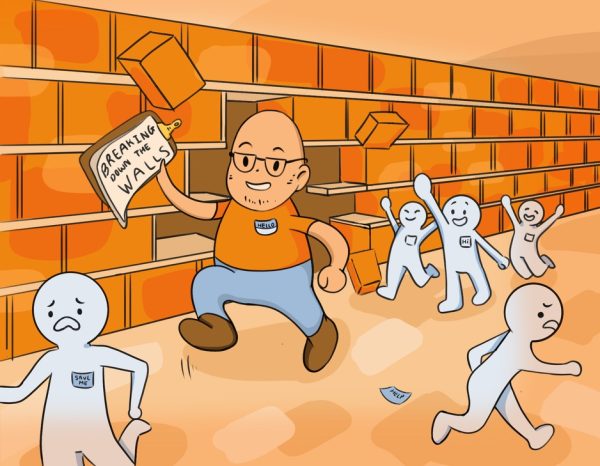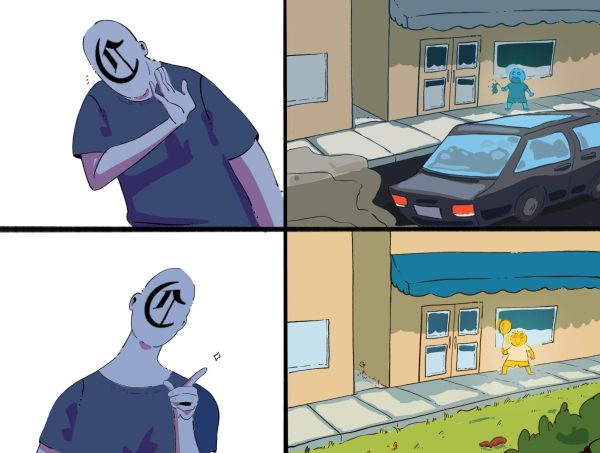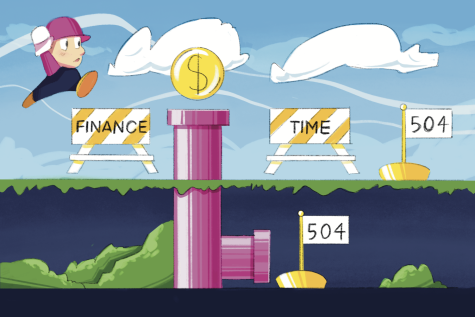Testing procedures should promote learning curriculum over memorization
Assessments ought to address student growth, continual learning
In the high performing academic culture of Palo Alto High School, tests are one of the most popular evaluation techniques used by teachers. Exams, however, only offer the chance to test a student’s knowledge at one point in time, and then do not offer the student a chance to improve their knowledge after receiving their score.
The Campanile feels that all teachers should adopt testing policies which encourage learning over rote memorization, and which allow students to develop their long term understanding of material even in the event of initially poor testing performance.
Testing protocols that allow for multiple assessments allow students the chance to further demonstrate their understanding of important material more than single chance testing protocols do. When a student takes a test, there are a multitude of factors that can influence that student’s success, including anxiety over his or her performance and other temporary stressors.
By giving multiple testing opportunities, teachers allow students to make up for these unrelated issues that may contribute to a poor test score. Even testing anxiety could be greatly reduced if students understand that they have the chance to retake a examinations that they perform poorly on.
We are not suggesting that the same assessments be retaken until every student gets 100 percent; we recognize that this would not encourage students to apply themselves fully. Rather, we believe that teachers should establish a policy that allows and encourages students that fail to demonstrate their understanding of course material on an exam to complete some type of remedial work or receive another examination specific to the areas of the material with which he or she struggled.
Some teachers at Paly have implemented this type of assessment. Michael Stern, who teaches regular and AP Physics at Paly, uses a testing retake policy that allows students to gain back all points missed on the initial take. However, the majority of other Paly teachers instead create uniform, single-take opportunity tests that are administered to all of the class periods of that particular class, which prevent teachers from creating more class-specific, “personalized” tests that are more fitting than a standardized test. This method not only prohibits retakes, but also prevents the creation of tests geared for a certain class.
“I know that, for example, in math, all the teachers have to give the same exam, which makes it harder to have that kind of process of reflection and revision so I think it’s going to look different from subject to subject and class to class,” Stern said.
In order to gain points back on retake tests, students must correct their problems on the original test, then do extra practice work associated with the objectives they missed on the first assessment.
Once the students have learned the material they missed the first time around, they can retake the exam and, presumably, improve their score. This provides students an opportunity to relearn the material and forces them to take initiative through this kind of prerequisite work, therefore preparing them better for future assessments.
“There are definitely lots of different ways to implement a variation of my retake policy, and I do think that retakes are a good way not just to help students be successful, but to help them focus on learning rather than focus on being really nit picky about the scores on a particular question,” Stern said.
Writing a test that measures how much material students should have absorbed throughout a unit’s homework and lessons may be difficult. We suggest that teachers learn from questions lots of students have missed on tests administered in previous years as well as what concepts from the unit were a focus in class and on quizzes or homework assignments. Presumably these emphasized areas are what are most important in the curriculum, and will thus be reflected appropriately based on importance and relevance.
“I certainly hope that most teachers, when they prepare a test, are thinking about how they can check to see that students have learned the things that they are supposed to learn,” Stern said. “However, having that as your intention doesn’t always mean that that’s the way it will work out. I think that my system works pretty well for me, but every year I go back and rework the tests a little bit because every year I find something and think ‘Oh, the student answered this question this way,’ and I can kind of see why they answered that in the way they did, but that wasn’t really what I was looking for.”
We applaud Stern for this system of self-evaluation and encourage other teachers to adopt a similar policy of review for their tests. This system of review will only promote targeted, though-provoking questions, which will only go to benefit student understanding and application of course material.
Your donation will support the student journalists of Palo Alto High School's newspaper









